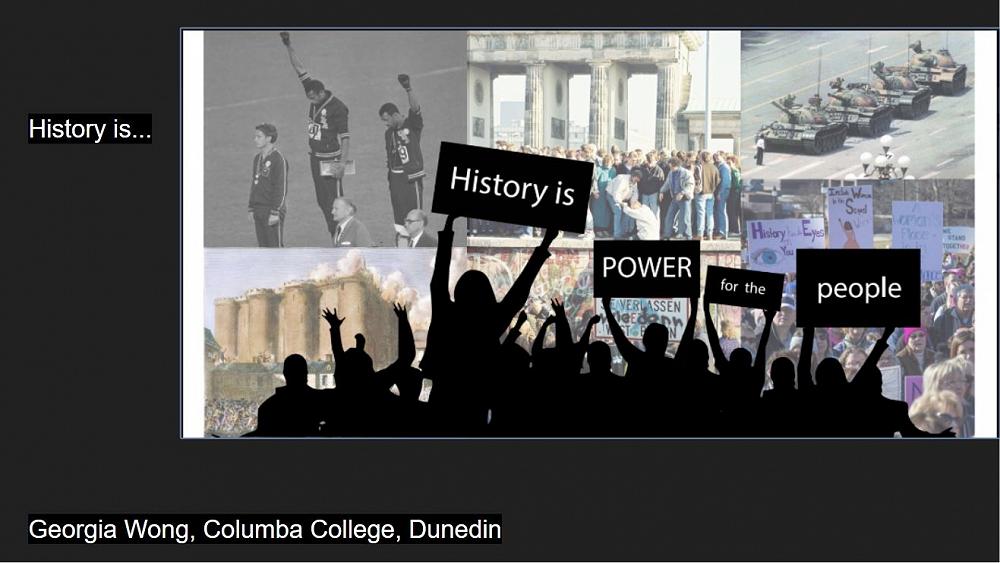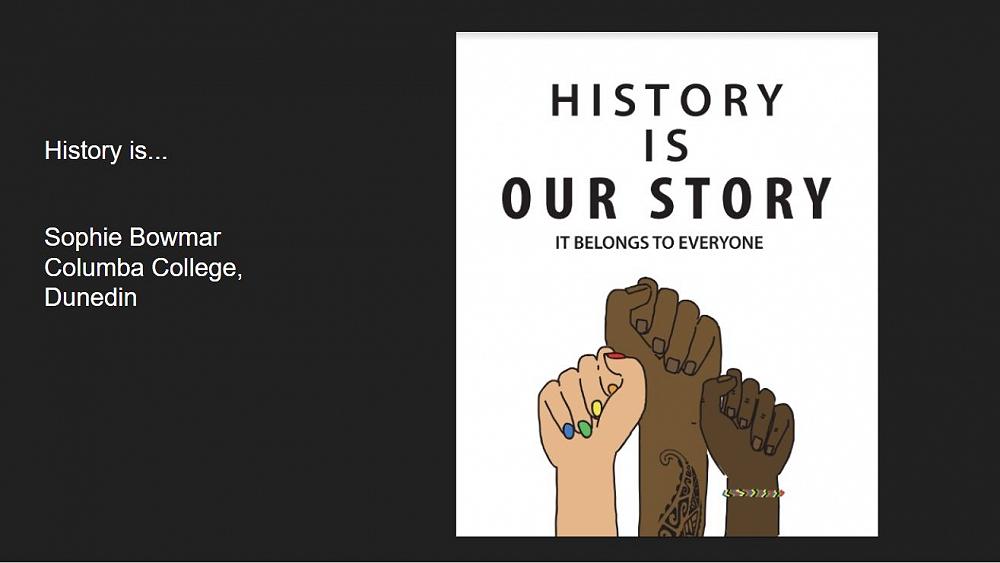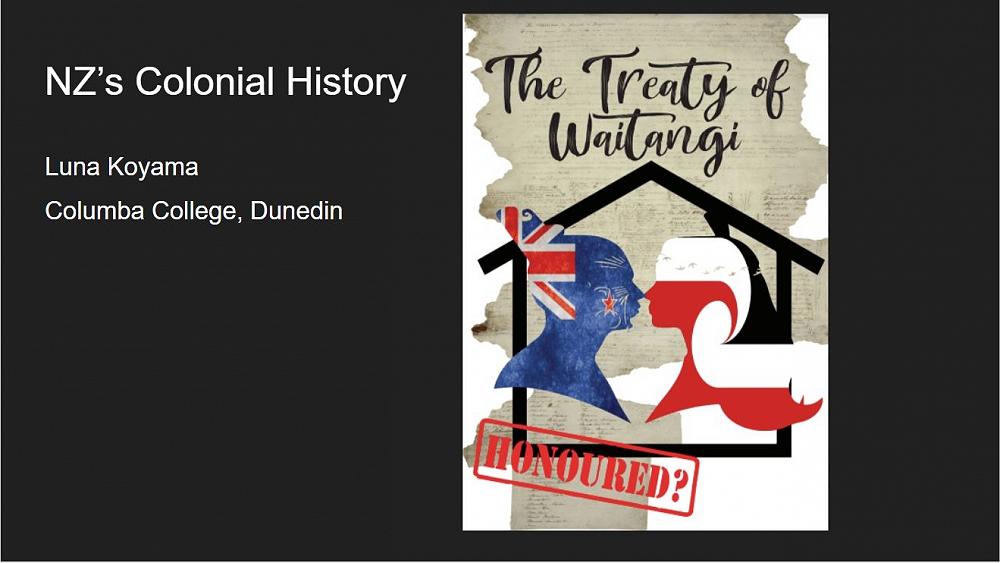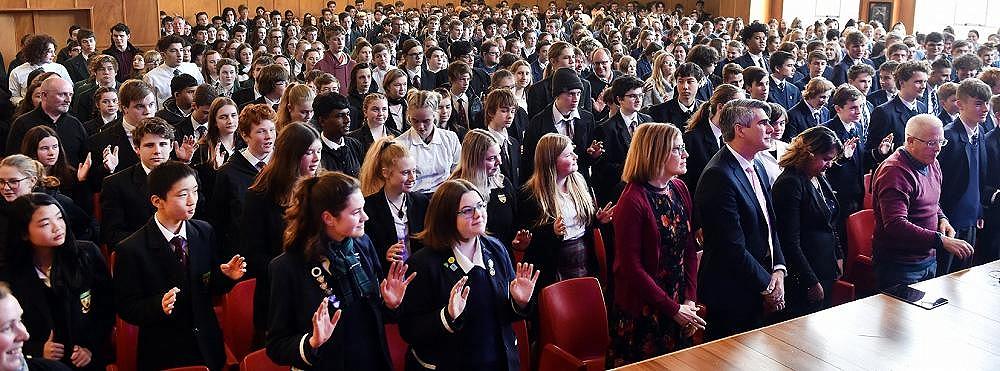
History
It has been another busy and successful year in the History department with strong numbers from Year 10 up to Year 13.
We have also had a healthy interest in those signing up for Scholarship, following on from the four History Scholarships awarded in February to Anna Snow, Bridget Scott, Erin Dailey and Michaela Sutherland.
In Year 12 and 13, we have examined populism as a force in history through independent research and various historical case studies. Given the current situation with Brexit, it was interesting to welcome the first secretary of the Delegation of the European Union to New Zealand, Per Sjönell, to talk to the students about what he perceived to be the vital role of the European Union today economically and politically.
European Union Essay Competition 2019
Year 12 students, Sophie Woodham and Abby Bowmar, did very well in the Otago and Southland European Union essay competition. The essay question was: Some people criticise the European Union. Why is it so vital?
Sophie came first. She won a day shadowing the EU ambassador in Wellington and a $100 book voucher. Abby came second and also won a $100 book voucher.
Nationwide History Poster Competition
The New Zealand History Teachers Association ran a nationwide competition looking for poster designs along two themes: History Is… and New Zealand’s Colonial History. We had three winners out of the seven nationally, which is a phenomenal achievement. Georgia Wong, Sophie Bowmar and Luna Koyama all won $100 and the chance for their designs to be in history classrooms across the country by 2020.



TUIA 250 First Encounters
The Year 11 History class has been working hard on looking at different perspectives surrounding the arrival of Captain Cook in New Zealand 250 years ago. Groups have been researching various aspects of these first encounters between his crew and Māori in 1769. An excellent School Kit resource with so many pieces of evidence and links has helped us to explore the old ways in which this history has been taught in contrast with post-colonial perspectives on it. Here are some of their interactive museum exhibits.
(see photos – Hail – dates in document labelled photos to Chronicle email address)
Elizabeth Eckford Talk
All senior History students went on a once-in-a-lifetime opportunity to hear Elizabeth Eckford talk on 14th August, along with 750 other high school students from the region. It is the first time that she has travelled abroad from the USA.

Elizabeth was one of the Little Rock 9 who tried to enter the previously racially segregated Central High School, Little Rock, Arkansas in 1957, following federal desegregation laws. Governor Faubus and his state troopers held them back. Elizabeth did not get the message to meet with the other students, so found herself in the middle of an angry, hostile mob from the white community. She heard one of them threaten to lynch her and hang her from a tree; she was spat at in the face.
President Eisenhower was moved by the iconic photo of Elizabeth Eckford in the midst of the angry mob above, amidst wider reports of violence and racial intimidation. He sent down 1000 federal troops to escort the students into the school. The troops remained as protection for the students inside the school the following year as they attended classes.
The students found the morning powerful and inspiring. They took on board Elizabeth's personal message that to be silent or to turn away in the face of injustice is almost worse than being the open perpetrator of violence. Elizabeth sees the famous photo of her as merely symbolic of the wider struggle for black civil rights, and her life as that of an ordinary person.
Mrs K. Riepl
HOD History
